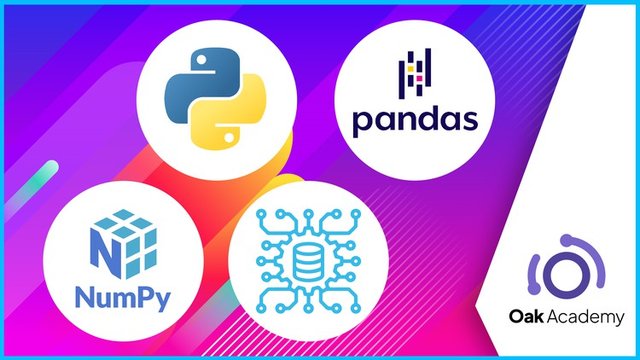
Published 3/2024
Created by Steve Pate
MP4 | Video: h264, 1280x720 | Audio: AAC, 44.1 KHz, 2 Ch
Genre: eLearning | Language: English | Duration: 24 Lectures ( 6h 42m ) | Size: 2.54 GB
How to develop a Linux kernel disk-based filesystem from scratch
What you'll learn:
Understand the flow from Linux user processes through to the kernel VFS layer and the interaction between the kernel and the filesystem.
Learn how to build a loadable kernel module and supporting commands (mkfs & fsdb) and how to create additional files on disk during mkfs time.
Developing a disk-based filesystem from scratch by understanding the process to follow and the order in which operations should be implemented
You will cover how to mount/umount a filesystem as well as all file and directory operations on directories, reglar files, hard links and symlinks.
Understanding kernel debugging techniques from simple use of printk calls to source level debugging with gdb/KGDB.
Requirements:
Linux/UNIX development, basic kernel knowledge, good working level of C
No need for assembler language or the ability to build a Linux kernel. You'll just need to install Ubuntu and development tools and compile the filesystem and commands
Description:
This course will teach you how to develop a Linux kernel filesystem from scratch. You will learn everything from building the commands and kernel module, loading the module, mounting a filesystem, unmounting and removing the module. All basic file / filesystem operations are supported with a module for each operation. We'll cover everything from file, directory, symlink and hard link creation to reading and writing files to details about filesystem / kernel interactions. There is also a chapter covering how to undelete a file which also highlights potential security issues. With the kernel module, mkfs and fsdb commands, the SPFS filesystem is only 2300 lines of code. The source code is accessible on-line and will be updated every year for new versions of Ubuntu Linux.You will learn the strategy to follow when building a new filesystem. What operations need to come first and which ones can wait until later.You will also learn how to debug the filesystem using a number of techniques from simple use of printk to source-level debugging using gdb/KGDB.The filesystem is very simple and contains intentional errors which help with understanding why the order of operations is very important during filesystem design.The course is supported by a free 450-page online Linux kernel filesystem book.
Who this course is for:
Experienced developers who wish to explore Linux kernel development, specifically in the area of filesystems
Homepage
https://ddownload.com/cwhnou5zyt5u/Linux_Kernel_Filesystem_Development.part1.rar
https://ddownload.com/tyu7lae5zy8u/Linux_Kernel_Filesystem_Development.part2.rar
https://ddownload.com/gkref129xnip/Linux_Kernel_Filesystem_Development.part3.rar
https://rapidgator.net/file/3e49765af2400b57226528bafa04e3a6/Linux_Kernel_Filesystem_Development.part1.rar.html
https://rapidgator.net/file/85ef820fbd324f4db2eb94d8665670d4/Linux_Kernel_Filesystem_Development.part2.rar.html
https://rapidgator.net/file/6a6284b7b8aaf7ccc6977c82d057062c/Linux_Kernel_Filesystem_Development.part3.rar.html
https://ddownload.com/tyu7lae5zy8u/Linux_Kernel_Filesystem_Development.part2.rar
https://ddownload.com/gkref129xnip/Linux_Kernel_Filesystem_Development.part3.rar
https://rapidgator.net/file/3e49765af2400b57226528bafa04e3a6/Linux_Kernel_Filesystem_Development.part1.rar.html
https://rapidgator.net/file/85ef820fbd324f4db2eb94d8665670d4/Linux_Kernel_Filesystem_Development.part2.rar.html
https://rapidgator.net/file/6a6284b7b8aaf7ccc6977c82d057062c/Linux_Kernel_Filesystem_Development.part3.rar.html

